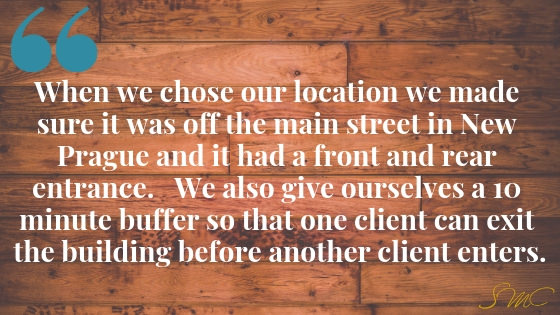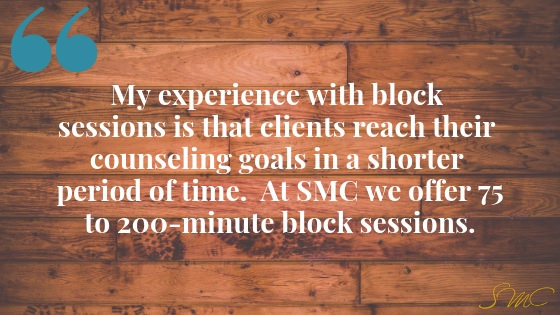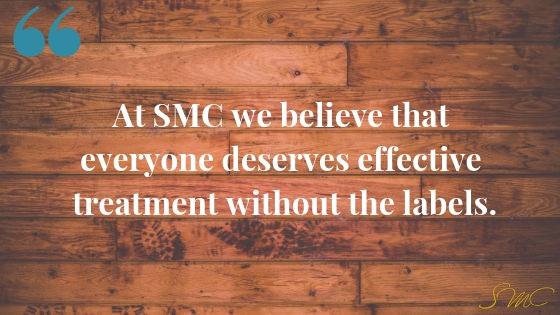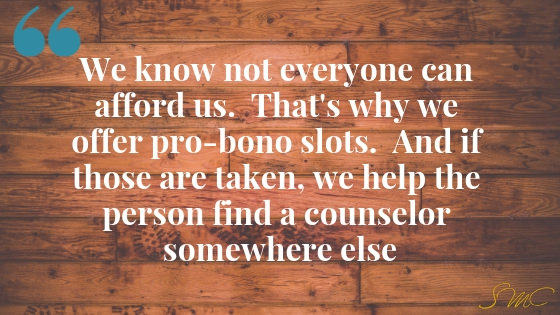Click here to listen to this blog article!

When you live in a small community chances are anonymity will be one of the biggest factors when choosing a counseling center.

In this article you’ll learn the top eight things to consider when looking for a counseling center. And if you do your research you may be able to stay closer to home.
In a recent study, 42 percent of adult Americans have seen a counselor. That’s almost half of our population!
And I bet a lot of them had to consider multiple factors when choosing their professional. So lets get started.
1. Look for Customer Reviews.
Now this can be tricky since most clients don’t want their identities known. But there are some brave souls that will review their experience.
I find that if their experience is terrible, they will warn others, or if the service was exceptional they will give the clinic a shoutout.

2. Are the Counselors Specialized or General Practitioners?
The next thing that’s important to consider is training. Does the clinic have mental health professionals with the proper experience. If you look up a professional and they have 15 plus specialties, that’s a general practitioner. They know a little about a lot of mental health issues.

On the flip side, if you see one that has three-five listed under their name, that’s your expert level counselor. They have taken the time to obtain extra training in specific areas so that they can be extremely effective.
3. Does the Building have Multiple Exits?
This is a good thing to look for if you are concerned with anonymity. If there is a front and rear exit you can choose the one that’s most private.

4. Is the Location Private and Safe?
If the counseling sessions will be later in the evening, you’ll want a secure building with good exterior lighting.
When you visit the center, try to make it around the same time as your sessions will be. That way you can assess the security, for example exterior lighting and parking availability.
5. How Does the Clinic Protect Your Confidentiality?
When you first show up to the clinic, look around and ask yourself if the space feels safe for you to share your story. For example, if in the waiting area you can hear what is being said in the actual therapy room, your information may not be confidential.
Another good test is to look for white noise makers outside the therapy room door. What these machines do, is break up the noise that comes from within the room going out. So it scrambles or muffles the content being said in session.
6. Do you Feel Comfortable in the Space?

In order for you to relax and get the most out of your sessions, you need to have a certain level of comfort. This includes how you feel with your counselor and in the actual office.
Is the space clean? Is the seating comfortable? Do you feel a sense of calm when you are there? All good questions to ask yourself on your first visit.
7. Can you Commit to the Commute?
If you choose to go out of town for therapy, you need to consider the drive.
In today’s world, travel time makes a big difference in our lives. Consider the time of day you will be traveling to determine if you’ll run into traffic congestion. It’s also important to consider the commute time because you may be in counseling for several weeks, if not months.
If you’re traveling from out of town, ask the counselor if he does block sessions. This can make the travel time worth it.

8. How Much is This Going to Cost?
There are two ways to answer this question. And it mainly depends on if you plan to use your medical insurance or pay out of pocket.
If you plan on using your insurance, the cost will depend on if you have met your deductible and/or if you have a co-pay.
If you’re going out of pocket, you can plan to spend any where from $100-$275/session depending on if it’s for couples or individual counseling.
Now that price can shock people. You might ask yourself, why would someone choose to pay out of pocket, when they have insurance?

Side note: Let me briefly explain the difference between using medical insurance versus cash pay.
The main thing that most people don’t know, is that if you use medical insurance for mental health treatment you have to be diagnosed with a mental disorder. This disorder goes on your permanent medical record.
So regardless if you truly have a disorder or if you’re just going through a tough time, you’ll get a label.

So are there other benefits for paying out of pocket?
Yes. There are three main benefits. The first is not needing to be diagnosed. The second is that you receive a higher level of care and you have someone that is expertly trained. And third the pace of treatment is faster, which means you’re more likely to achieve your goals sooner.
With that said, private practice pricing is not for everyone. If you know that you need to use your insurance, simply call your insurance provider and ask for a list of credentialed clinics in your area.
Another tip, if you do find a counselor that you really want to work with but they are cash pay, ask if they offer a sliding scale or if they offer any pro-bono slots.

And That’s a Wrap!
There you have it, the top points to consider when you Google “counseling near me.” And remember if you have further questions call the clinic that you’re interested in and simply ask. We are in this profession to help you feel better, and we are happy to talk with you.

